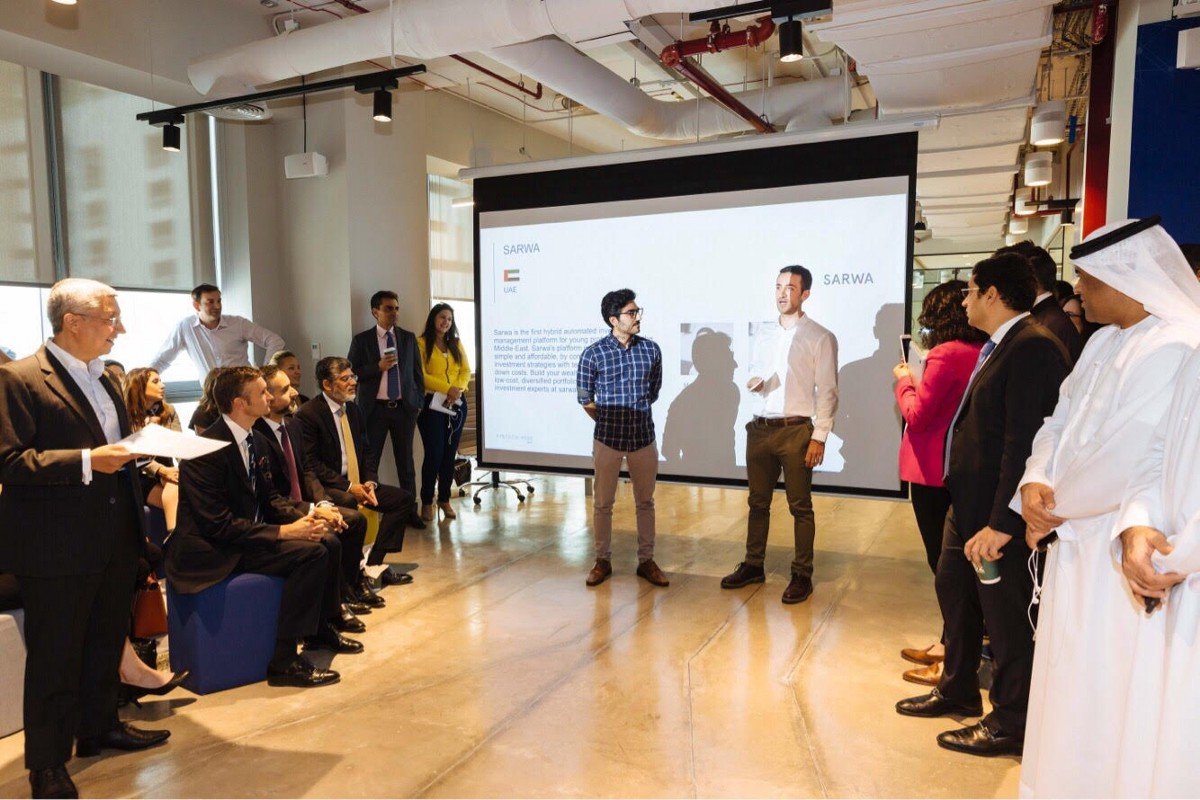In recent years, the Middle East has seen a surge in social entrepreneurship, as startups across the region are increasingly focusing on creating businesses that not only generate profit but also drive social change. These startups aim to address a wide range of societal issues, including unemployment, education, healthcare, environmental sustainability, and financial inclusion. Social entrepreneurship has emerged as a powerful force for transforming communities, providing innovative solutions to long-standing challenges, and promoting sustainable development.
This article explores how social entrepreneurs in the Middle East are leveraging technology, community engagement, and innovative business models to make a positive impact on society.
1. What is Social Entrepreneurship?
Social entrepreneurship is the process of developing and implementing business solutions that tackle social, cultural, or environmental issues. Unlike traditional businesses, which primarily focus on profitability, social enterprises prioritize social impact while still generating revenue. These startups operate with a dual mission: to create value for their stakeholders and to address pressing societal challenges.
In the Middle East, social entrepreneurs are playing a critical role in addressing the region’s most urgent issues, including poverty alleviation, unemployment, access to education, and sustainability. These startups are transforming the landscape by providing opportunities for marginalized communities, improving access to essential services, and contributing to economic growth.
2. The Rise of Social Entrepreneurship in the Middle East
The Middle East is no stranger to challenges—ranging from high unemployment rates to environmental concerns. However, the region is also witnessing a new wave of innovative startups that are committed to tackling these issues through socially-driven business models. With the support of progressive governments, growing access to technology, and an increasing number of impact investors, social entrepreneurship is gaining momentum.
Countries like the UAE, Jordan, and Lebanon are at the forefront of this movement. The UAE’s Dubai Future Accelerators and the Sharjah Entrepreneurship Center (Sheraa) are actively supporting social enterprises, while Jordan and Lebanon are home to several grassroots social initiatives.

3. Leading Social Startups Driving Change
Several Middle Eastern startups have gained recognition for their innovative approaches to social issues. Here are a few notable examples:
1. Nafham (Egypt)
Sector: Education
Impact: Nafham is a leading edtech startup in Egypt that offers free online educational content for students in K-12. With a mission to democratize access to quality education, Nafham provides video lessons aligned with the Egyptian and Syrian curricula, offering valuable resources to students in underserved areas. The platform reaches over 5 million students and has become a critical tool for bridging the education gap in the region.
Why It’s Driving Change: By offering free, high-quality educational content, Nafham is improving access to education for millions of students, particularly those in rural or disadvantaged areas. The platform has become a beacon of hope for many who otherwise would have limited access to learning opportunities.
2. Kiva Arab Youth (Jordan)
Sector: Microfinance
Impact: Kiva Arab Youth is a micro-lending platform that provides zero-interest loans to young entrepreneurs in Jordan. Through partnerships with local banks and financial institutions, the startup offers youth the opportunity to start small businesses, helping to reduce youth unemployment and promote economic inclusion.
Why It’s Driving Change: Youth unemployment is a significant challenge in the Middle East, and Kiva Arab Youth is addressing this issue by providing much-needed access to capital for young entrepreneurs. By offering financial support and business mentorship, the platform is empowering the next generation of entrepreneurs to create sustainable livelihoods.
3. Sarwa (UAE)
Sector: Financial Inclusion
Impact: Sarwa is a fintech startup that provides affordable investment opportunities for young people in the UAE. Sarwa’s mission is to make investing more accessible to the masses, particularly for individuals who may not have access to traditional financial services. By offering low-fee investment portfolios, Sarwa is helping people from diverse backgrounds build wealth and secure their financial futures.
Why It’s Driving Change: Sarwa is driving financial inclusion by empowering young people to take control of their financial future. In a region where access to financial services is often limited, Sarwa’s platform offers a path toward economic empowerment for individuals from all walks of life.
4. The Mawaddah Initiative (Saudi Arabia)
Sector: Women’s Empowerment
Impact: The Mawaddah Initiative focuses on empowering women in Saudi Arabia by offering skills development programs, mentorship, and job placement services. The startup’s primary aim is to bridge the gender gap in the workforce by providing women with the tools and resources they need to succeed in traditionally male-dominated industries.
Why It’s Driving Change: In a country where women’s participation in the workforce has historically been low, The Mawaddah Initiative is playing a crucial role in fostering women’s empowerment. By giving women access to employment opportunities and the skills needed to excel, Mawaddah is contributing to the kingdom’s broader goals under Vision 2030.
4. Technology as an Enabler for Social Change
Technology has played a significant role in driving the growth of social entrepreneurship in the Middle East. Digital platforms, mobile applications, and social media are making it easier for social entrepreneurs to scale their impact and reach a wider audience.
For instance, startups like Nafham are leveraging online video platforms to provide free educational resources to millions of students, while fintech platforms like Sarwa are using AI and automation to make financial services accessible to underserved communities. In addition, social media has enabled startups to build strong communities around their missions, fostering engagement and support from users and stakeholders.

5. Challenges and Opportunities for Social Entrepreneurs
While social entrepreneurship is gaining traction, entrepreneurs in this space face unique challenges. One of the biggest hurdles is securing funding. Traditional venture capital often prioritizes profitability, whereas social startups must balance financial sustainability with social impact. However, the rise of impact investing—which focuses on generating both financial returns and social or environmental benefits—is helping to bridge this gap.
Regulatory challenges also remain, particularly in countries where the legal frameworks for social enterprises are still underdeveloped. In some cases, social entrepreneurs struggle to navigate the bureaucratic processes required to establish their businesses or access government support.
Nevertheless, opportunities abound for social entrepreneurs. The region’s young population, combined with its rapid digital transformation, provides fertile ground for the growth of social enterprises. Moreover, the increasing interest from governments in supporting entrepreneurship, particularly in the UAE and Saudi Arabia, is creating a more conducive environment for socially driven startups.
6. The Future of Social Entrepreneurship in the Middle East
The future of social entrepreneurship in the Middle East looks bright. With the region’s governments focusing on sustainable development and social progress as part of broader economic goals, social startups will continue to play an important role in shaping the future.
As impact investing grows and more institutional investors prioritize social returns, we can expect to see increased funding for socially driven ventures. Additionally, the rise of public-private partnerships will further enhance the ecosystem for social entrepreneurship, as governments, corporates, and nonprofits collaborate to tackle regional challenges.
Conclusion
Social entrepreneurship in the Middle East is on the rise, with startups across the region addressing critical societal issues through innovative and impactful business models. By leveraging technology, engaging communities, and prioritizing sustainable development, social entrepreneurs are not only improving the lives of individuals but also contributing to the long-term prosperity of their societies.
As governments, investors, and institutions increasingly recognize the value of social entrepreneurship, the region is poised for further growth in this sector. With the right support, social startups will continue to drive meaningful change and create a more inclusive and sustainable future for the Middle East.
Image Courtesy Notice
At The Storiez, we value the efforts of photographers, artists, and content creators. The images featured in our articles are sourced from various news portals and online websites. We strive to ensure proper credit is given wherever possible. If you are the rightful owner of any image used here and would like to request its removal or correct attribution, please feel free to contact us. We respect intellectual property rights and aim to address concerns promptly.
